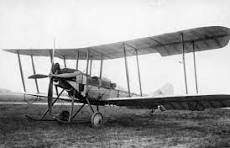I grew up in the shadow of the Second World War. London was full of cranes, rebuilding the city after the blitz of over twenty years before. We played on bomb sites, hoping always to find a rifle or a bomb or even the corpse of a Luftwaffe pilot. The best I found was a battered silver star with the word Deputy on it. I gave it to Keith West, my best friend and deputy leader of our gang.
Our favourite games were battles and our favourite fighting song was ‘We won the war in 1944,’ which was unhistorical but had the benefit of rhyme. I pleaded with my parents to give me a toy rifle and was over the moon when they did.
The first world war had far less impact upon us. Both my grandfathers fought in that conflict, John White, my mother’s father, volunteered in 1916 when he was 43. He was a skilled engine smith and helped maintain the aeroplanes of the Royal Flying corps.
My other grandfather, George Smith volunteered when he 30 and sick of making munitions. He worked on the big guns, which permanently damaged his hearing.
I was told years latet that the woman Grandad married after the war, my grandmother, had lost her first fiancé, Percy, at the Battle of the Somme. If he had survived and she’d married him, I would not be here today. The effects of war roll ever onward.
The BBC series The Great War came out when I was ten years old and, somewhat to my surprise, I was allowed to watch the first episode until my parents realised how distressing it might prove.
That one programme certainly had an effect upon me, for I thought the war an awful thing. Many of the soldiers were only eighteen and had experienced little of life before fighting in the catastrophe.
When I was eleven I was watching The Royal British Legion’s Festival of Remembrance and I was suddenly prompted to write a poem about it. I wrote it while the programme was on and when I found it years later I realised I had written it in one fell swoop, including the spelling mistake in the title.
SCARRRED WITH RED
Alas, the cream of Britain’s men are dead
And the fields around are scarred with red.
There’s Pete and Mick and Bob and Ned,
There’s all my mates so very dead.
What can I do to help them now,
Apart from make a solemn vow.
In days to come none shall forget
Those men, their deaths so bravely met.
Alas, young people still fight old men’s wars.






Poignant. And then we look at Gaza this week and one could weep.